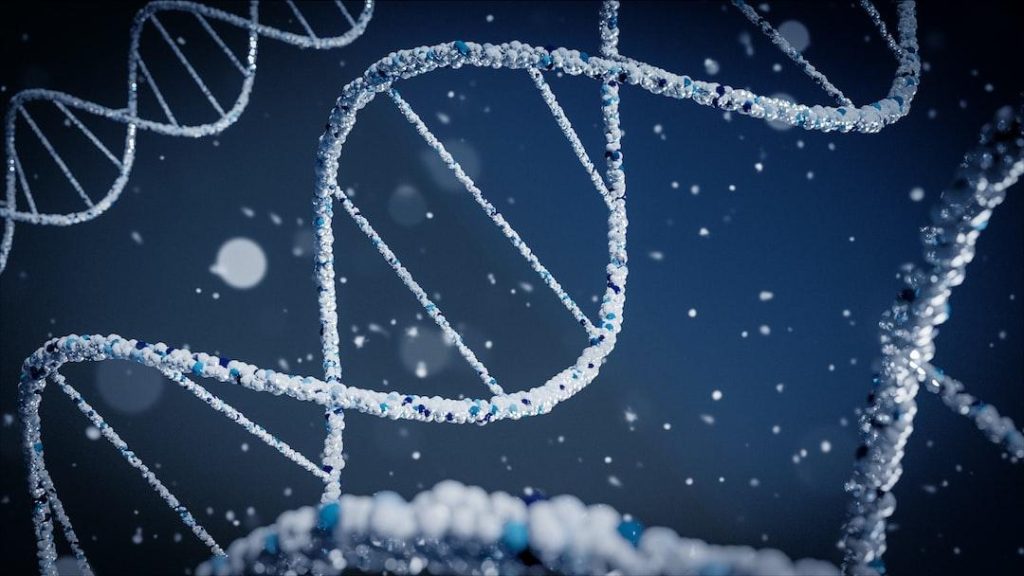Interested in understanding more about NAD and how it impacts our body? It is essential to know how this critical coenzyme influences our cells and overall well-being. Keep reading to discover the different ways NAD affects the body.
The Role of NAD in Cellular Energy Production
One of the primary roles of NAD (nicotinamide adenine dinucleotide) in the body is its involvement in cellular energy production. This coenzyme is necessary for converting the food we eat into energy by participating in the process of breaking down carbohydrates, fats, and proteins. These macronutrients are then converted into ATP (adenosine triphosphate), the primary source of energy for our cells.
Through a series of chemical reactions known as cellular respiration, NAD helps utilize the potential energy stored in the molecular bonds of carbohydrates, fats, and proteins. A critical coenzyme is NAD, as it acts as a hydrogen and electron carrier, facilitating the transfer of these particles between different molecules during the process of cellular respiration. This efficient transfer enables cells to generate more ATP and ensures that our body has enough energy to function correctly.
Given its crucial role, a deficiency in NAD can lead to several health issues, including fatigue, muscular weakness, decreased immune function, and even cognitive decline. On the other hand, maintaining optimal NAD levels can help improve energy levels, enhance cognitive performance, and support overall well-being.
How NAD Aids in DNA Repair and Protection
NAD also plays a vital role in DNA repair and protection. Our DNA is continuously exposed to damage due to various factors like environmental stress, exposure to harmful chemicals, or natural wear and tear during the cellular replication process. Unrepaired DNA damage can lead to cell death, mutations, and even the development of severe diseases like cancer.
NAD is required for the proper functioning of enzymes involved in DNA repair, such as poly (ADP-ribose) polymerase (PARP). PARP, which uses NAD as a substrate, helps detect damaged DNA, recruits other repair proteins, and repairs the broken DNA strands. NAD also aids DNA protection by supporting the antioxidant defense system within the cell, which neutralizes free radicals and oxidative stress that can cause damage to the genetic material.
By enhancing NAD levels, we can improve our body’s natural ability to repair DNA and protect it from damage, reducing the risk of developing various diseases related to DNA damage, such as cancer, neurological disorders, and premature aging.
NAD and Its Impact on the Aging Process
As we age, our body’s ability to maintain an optimum NAD level declines. This decrease leads to a reduced capability to produce cellular energy, repair DNA, and combat oxidative stress, which together contributes to the natural aging process. Low NAD levels have been linked to the onset of age-related diseases, decreased muscle strength, and cognitive decline.
Researchers have found that boosting NAD levels can ameliorate the effects of aging on various cellular processes. By increasing NAD levels, the body can efficiently produce energy, support DNA repair mechanisms, and combat oxidative and cellular stress. This enhancement could potentially slow down or reverse the aging process and improve overall health.
Several approaches are currently being explored to increase NAD levels in the body, including the use of NAD precursors like nicotinamide riboside (NR) and nicotinamide mononucleotide (NMN), which can be converted into NAD within the body. These precursors hold promise for enhancing NAD levels and promoting healthy aging.
Immune System Support and the Role of NAD

Another essential aspect of NAD is its involvement in supporting a healthy immune system. NAD is required for the proper functioning of immune cells, such as macrophages, T-cells, and natural killer (NK) cells. These immune cells work together to recognize and eliminate harmful pathogens, such as bacteria and viruses, as well as playing a role in removing damaged or cancerous cells from the body.
NAD influences the immune system through the activity of enzymes called sirtuins. Sirtuins regulate several cellular processes, including inflammation, cellular stress responses, and metabolic pathways, which directly impact the immune system’s health and functioning.
Maintaining optimal NAD levels ensures that the immune cells can efficiently communicate with each other and respond to invading pathogens, ultimately defending our body against various infections and diseases. As a result, adequate NAD levels are crucial for maintaining a robust immune system and overall well-being.
Altogether, NAD is a critical coenzyme that plays a significant role in cellular energy production, DNA repair, the aging process, and immune system support. Ensuring that our bodies have optimal NAD levels is essential for maintaining good health and mitigating the effects of aging and disease.
